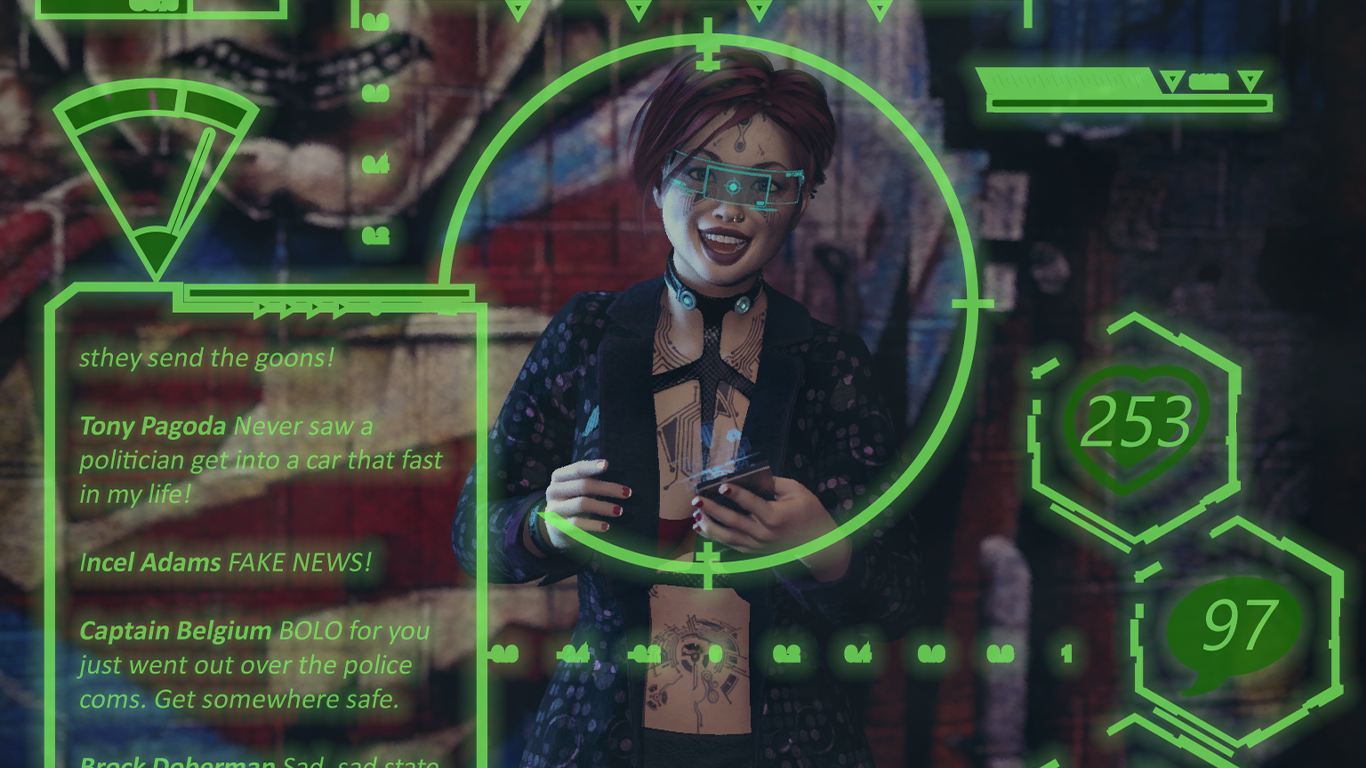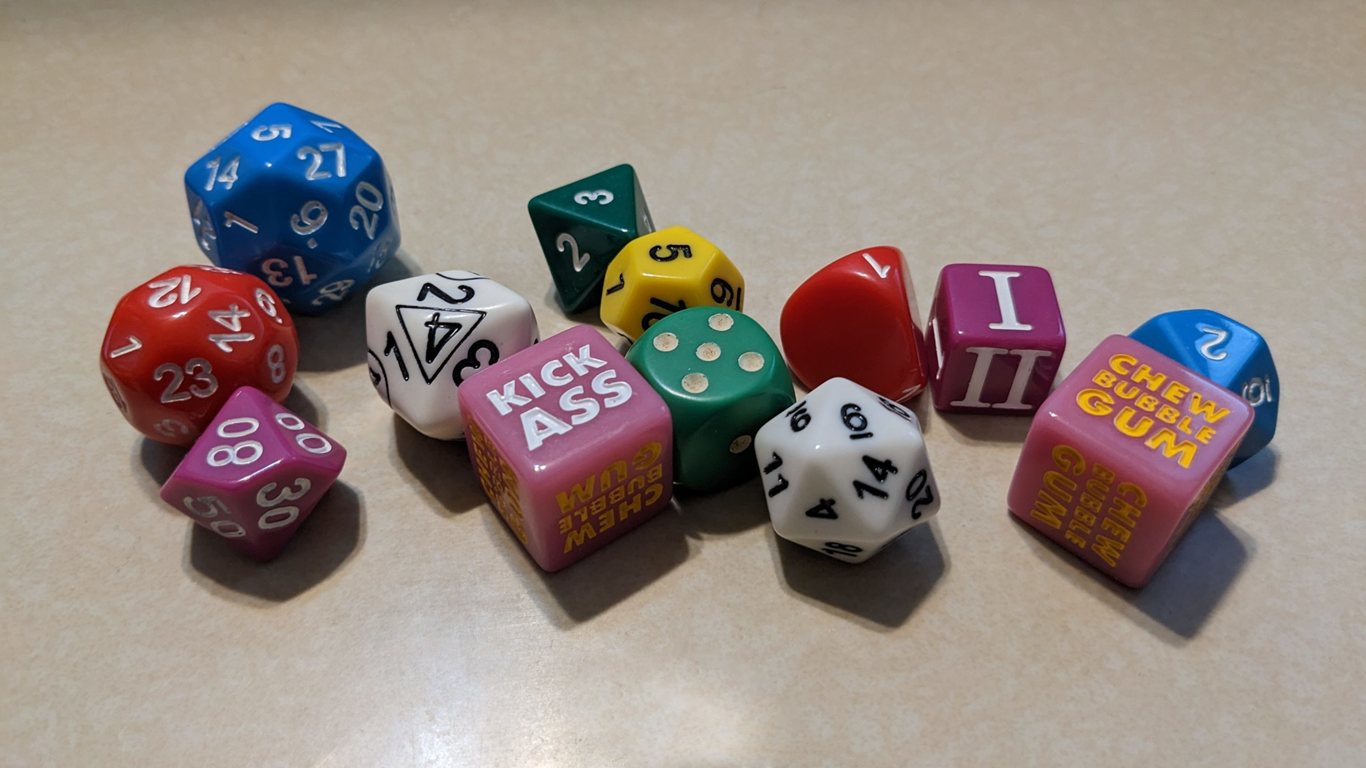We may earn money or products from the companies mentioned in this post.
[Quick Site Note: A recent PHP update seems to have broken some of the random generator scripts (most tragically, the Qerth Name Generator). I am aware of this and will fix them as soon as time allows.–Steve]
Back in olden times (the late 1990s), we didn’t have all the fancy PDFs and ebooks and Print On Demands and Pokemons and What-Nots you youngsters have today. If we wanted to publish a game, we had to print thousands of books through a traditional printer. Even for a not-quite book like the first edition of QAGS–we didn’t call it a zine back then, because zines were something that anarchists and punk rockers and other people much cooler than gamers made–we had to print hundreds of copies to get the cost to a range where we could sell it and still make a profit after local stores (and, we dreamed, game distributors) took their cut.
The March of Technology
By the time Spooky came around, some printers were doing what they called “Print On Demand.” At that time, POD meant that the printer was willing to do print runs of only a few thousand copies. What we think of today as POD, where you can literally just print one copy without paying hundreds of dollars, wasn’t available until we did Qerth, which is probably why Qerth is the first Hex Games “real book” that I don’t have several boxes of in my attic. POD was a great development; we’d never have been able to financially justify printing Qerth (and many books that came later) if we still had to print thousands of the damned things.
A few years after Qerth came PDFs (and more importantly, PDF marketplaces), which allowed you to release games without printing a physical book at all. We foolishly resisted PDFs at first (“Those aren’t real books!”) but eventually we embraced it. It’s a good thing we did, because the way games were produced and distributed before 2005 or so just doesn’t work for niche products like the ones Hex Games makes. The whole system was terrible for anyone who wasn’t producing “D&D, but better!”™ for a whole bunch of reasons that could only be fully expressed through a Terry Gilliam film.
One big advantage of Print On Demand and PDFs is that they are considerably more forgiving than traditional printing. While our editors did an amazing job, there are a couple of errors in QAGS Second Edition and Spooky that will be there until the last copy is sold. With Qerth, we had the option of making changes after the first 50 copies sold out, and with PDFs you can update the file at any time. Most platforms will even let you send out a message to everyone who bought the book letting them know there’s a new version available.
The Problem
Unfortunately [here comes the but/rant/Old Fart grumbling], I’m beginning to suspect that the ability to update a product after it’s released may not always be an advantage. Some of you young’uns seem to be taking things a little too far. I’ve been getting a lot more update notifications than I’m happy with lately. The final straw for me came earlier this year with a game that I will not name because I’m a considerate bastard.
The game in question was one that I backed on Kickstarter 3 or 4 years ago. After going trough the usual pattern (delay announcement, radio silence, apologies for radio silence accompanied by tragic backstory, bold new plan, repeat) that usually means you’ve thrown your money away if it goes on for more than a year, the product was actually released, at least in PDF form (the print version still has some tragedy to overcome). Then the updates starting coming. Lots of them.
I’m not sure exactly how many times the game ultimately got updated (or if they’re done) because eventually I unsubscribed because I was so annoyed by the constant emails that the mere thought of the game pissed me off, which means I’ll probably never read it and don’t care if I’ve got an up-to-date version. That might seem like an overreaction–after all it’s just another piece of spam to delete, right?–but it shows a disregard for the customer’s time that strikes me as annoyingly self-absorbed.
Because it’s not just an email to delete, is it? In the case of a Kickstarter, it’s probably two emails, since Widdle Pwecious Game Designer inevitably feels the need to post a Kickstarter update letting you know that there’s a Drivethru update in your inbox. Then, if you actually want to an up-to-date copy of the PDF, you’ve got to go to Drivethru (twice, since the most prominent link in the email isn’t the actual update link), sign into your account, figure out where you saved the original, and save the thing. After a few updates, you’ll inevitably end up with a few MAGNUM_OPUS.PDF(1)-type duplicates that you’re going to have to sort out at some point in the future, making the update a time suck that keeps on giving. The amount time this all takes is fairly small, but it’s a distraction that adds to chore of clearing out your email, which most of us want to spend as little time on as possible.
Aside from the mere existence of the update, the designer of The Game That Will Not Be Named usually described what was in the updates in their emails. While I support the policy of clarifying what an update involves, many of the dozens of updates I got before giving up belonged to one of two categories that, in my opinion, should never be sent out.
The Littlest Update
On one end of the spectrum are the updates where the notes read something like “fixed a typo on page 3” or “corrected alignment of the dick pic in my bio.” Look, I’ve published a lot of games in the last 25 years, and I get it. You’ve spent months on this book, it’s a part of your identity now (at least for a while), and you want it to be perfect. When you notice a mistake, it sticks in your brain like a catchy pop song and it won’t go away until the error is fixed. But here’s the thing: to most of the people who ordered it, it’s just a fucking game they ordered. They might open the PDF up for a quick glance, but it’s probably going into a “to read” pile and won’t be examined closely for months or years, if ever. The handful who do read the thing immediately might not even notice the error, and if they do it probably won’t ruin the game for them unless it’s one of many –in which case correcting the one isn’t going to help you much.
If you still can’t bear the thought that your precious little game has a “you’re” that should be a “your” on page 3, try using that ego to justify restraint. Correcting the error, regenerating the PDF file, uploading it to the sales platform, and sending out notifications takes a while, so is doing it for a single error really a good use of your clearly valuable time? Wouldn’t it make more sense to just keep a list of needed corrections and make them all in a single update? If you need people to know that you’re aware of the error, post an errata list on your website or something with a note that you’ll fix all the errors at some point in the future. Just don’t send out a notification when you add something to the errata list, because nobody cares.
Oops, Forgot The Game
On the other end of the spectrum are the updates where the designer notes that they’ve added a new section or rules system or some other big chunk of content. This shouldn’t happen. If it’s content that’s needed to play the game, it needs to be in the game when the game is released. If it’s not essential, use it in a supplement or release it as free bonus content or something. Don’t just shove it into the existing game. This is especially true if you’re offering a Print On Demand version; most people aren’t going to be happy to find out that the print version of the book they ordered when the game came out has 30 fewer pages than the one their friend ordered a year later.
There’s nothing wrong with offering incomplete versions of the game for fans who want to act as playtesters and beta readers, but this should be an opt-in arrangement that’s separate from the final release. You shouldn’t send it out to people who haven’t asked for it and you definitely shouldn’t pretend it constitutes crowdfunding fulfillment.
Best Practices
Maybe we as a community need to set some guidelines and expectations for responsible use of PDF updates. I’ll start. Below are my suggestions for how game creators can take advantage of the impermanent nature of modern publishing without pissing customers (or at least me) off.
1. Finish the game before you release it. This seems like it should be obvious, but apparently it’s not. All the things that are supposed to be in the game should be there when you release it. Don’t pretend that a half-complete game is a finished product no matter how far past the deadline it is.
2. Hire an editor. This will eliminate a lot of the piddling edits, and with so many games financed through crowdfunding these days there’s really no excuse for not including an editor in your budget. They’re not that expensive and a lot of them are willing to barter.
3. Only crucial updates for the first month. For the first month, don’t update the file unless there’s a huge error–you accidentally uploaded your collection of Klingon erotica instead of the game, a font or layout error caused a big chunk of text to be unreadable, something like that. You shouldn’t have to do this, though, because before you make the product available for purchase you’re going to “buy” a copy from the sales site, download the file it gives you, and check every page carefully for problems, paying special attention to things like sidebars and tables. If there’s an issue, you’re going to fix it before the book goes live.
4. Don’t update a file more than once a month. Personally, I think this is too many updates, but it spaces them out enough that most people won’t mind. Don’t feel the need to do an update every month, even if there are things to be corrected. Unless you find major errors like the ones mentioned in #3, wait until the list is long enough to justify both your time in making the corrections and your customers’ time downloading the new file.
In addition to being annoying, constant product updates are unprofessional. Every time you update a file, you’re saying “here’s something I screwed up, didn’t think of, or just didn’t bother with the first time around.” Even people who aren’t annoyed by extra emails are likely to think twice about supporting you in the future if they get constant bulletins about the things you didn’t get right on the first try. Gamers are pretty forgiving of errors, but the “I’ll just fix it later” mentality is making me miss the good ol’ days of “page XX,” and that’s not a good thing.





